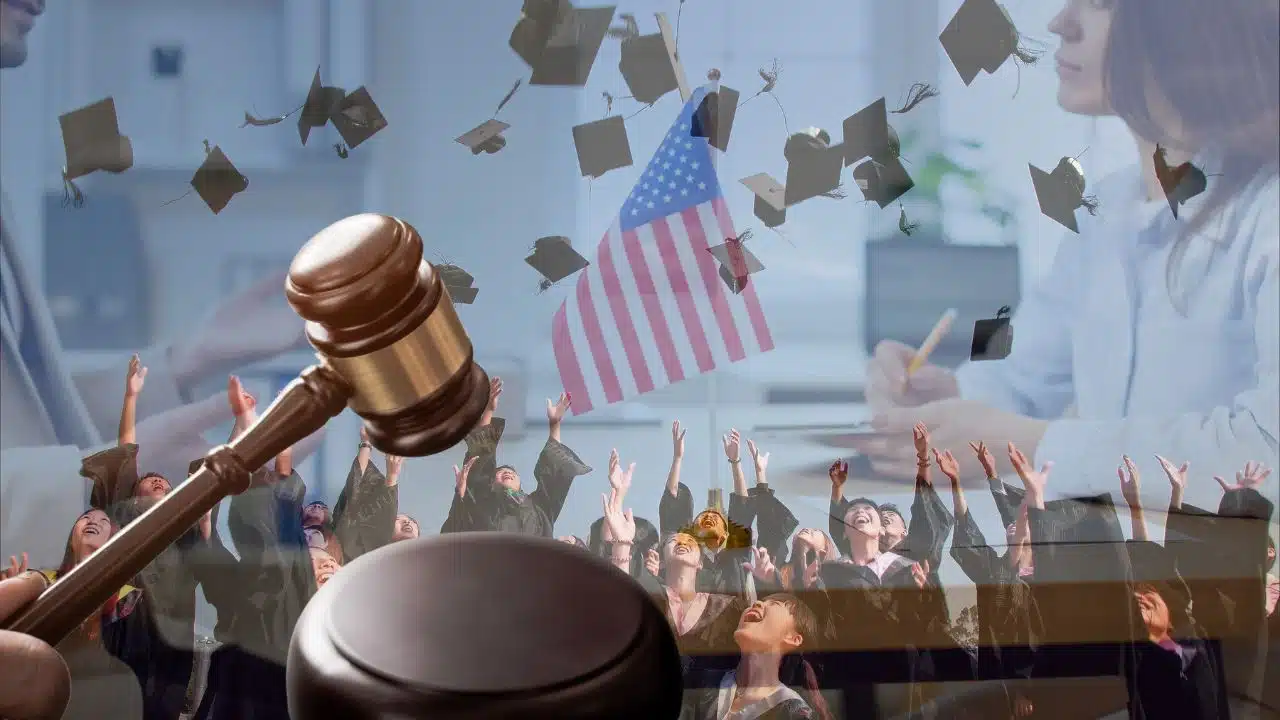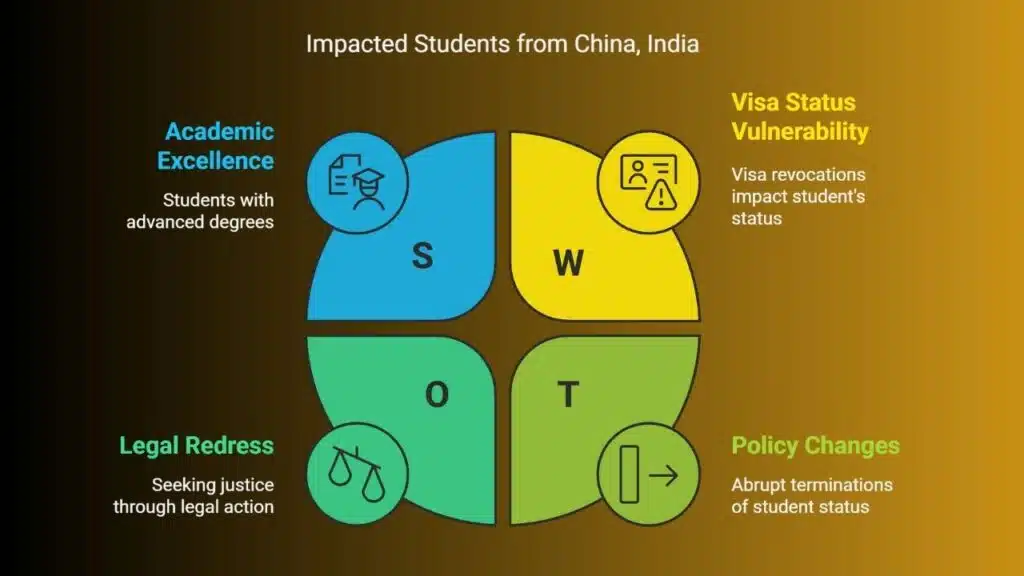A federal class-action lawsuit was filed Friday in New Hampshire challenging the revocation of student visas for more than 100 international students from China, India, and other nations. The lawsuit, spearheaded by affiliates of the American Civil Liberties Union (ACLU), marks the latest legal action aimed at reversing what is being described as a widespread and unjustified crackdown on international students by the Trump administration.
According to the ACLU, many of these students—graduate-level scholars pursuing advanced degrees in science, technology, and engineering—lost their F-1 visa status without warning, violating due process rights. The legal action represents students enrolled in schools across New England and Puerto Rico and aims to protect their ability to remain in the United States and complete their education.
“International students are a vital community in our state’s universities, and no administration should be allowed to circumvent the law to unilaterally strip students of status, disrupt their studies, and put them at risk of deportation,” said Gilles Bissonnette, legal director of the ACLU of New Hampshire.
Over 1,000 Students Affected Nationwide Since March
An investigative review conducted by the Associated Press reveals that approximately 1,100 students at more than 170 colleges and universities across the United States have been affected since late March. These sudden revocations have left many students in a legal and emotional limbo, with some being given little to no warning before their legal status was terminated.
In many cases, students received abrupt notifications via email or through university channels that their F-1 student visas had been canceled, jeopardizing their academic futures and exposing them to the risk of immediate deportation.
“We are seeing a pattern where students are penalized for minor or even unexplained infractions,” said an immigration attorney familiar with several cases. “It’s deeply concerning, especially when these are high-achieving students following every regulation.”
Lawsuit Highlights Impacted Students from China, India
Among the lead plaintiffs in the case is Zhang Hangrui, a Chinese Ph.D. student in electronic and computer science at Worcester Polytechnic Institute in Massachusetts. According to the complaint, Zhang’s visa status was abruptly revoked, disqualifying him from continuing his role as a research assistant—his sole source of income and a requirement for completing his doctorate.
Another plaintiff, Manikanta Pasula, was just months away from graduating with a Master’s degree in computer science at Rivier University in New Hampshire. He had intended to apply for Optional Practical Training (OPT), a program that allows international students to work in the U.S. temporarily after graduation. That plan now hangs in the balance.
The lawsuit asserts that the U.S. government failed to provide the legally required notice before terminating these students’ statuses. Legal experts say such terminations without proper process may violate constitutional protections.
Temporary Relief Granted in Some States
In recent weeks, several courts in the U.S. have taken emergency steps to protect affected students. Judges in New Hampshire, Wisconsin, and Montana have issued temporary restraining orders, barring authorities from taking deportation action while the legal cases proceed.
These orders, however, are limited in scope and apply only to students directly involved in those cases. The new class-action suit seeks broader relief that would reinstate F-1 visa status for all students impacted by the policy.
Visa Revocations Tied to Policy Shifts and Protests?
The lawsuit unfolds amid broader scrutiny of U.S. immigration policy under the Trump administration. Last month, U.S. Secretary of State Marco Rubio confirmed that the government was revoking visas of individuals deemed to be acting “counter to national interests,” which includes some student protestors and others facing criminal charges.
In one high-profile incident, Columbia University activist Mahmoud Khalil reportedly had his visa canceled due to his participation in pro-Palestinian demonstrations opposing Israel’s actions in Gaza. However, universities maintain that the vast majority of the affected students have no involvement in political activities.
Instead, many were targeted over minor infractions such as long-past traffic violations or were given no explanation at all.
Colleges Push Back, Demand Transparency
Colleges and universities across the U.S. are calling for greater transparency and fairness in the process. Many administrators say the Department of Homeland Security has not provided clear criteria for the visa terminations, leaving them unable to properly advise or protect their students.
“The lack of notice, the absence of any appeal process, and the sheer scale of this issue suggest a systemic problem,” said a university dean at a New England school.
The Department of Homeland Security has yet to issue a formal response to the lawsuit or clarify the legal grounds for the visa cancellations. The ACLU and its partners are now urging the court to halt further deportations and restore students’ ability to lawfully remain in the U.S. while their cases are resolved.
The Information is Collected from MSN and CNN.





































